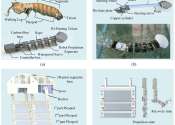Vertical electrochemical transistor pushes wearable electronics forward
A transdisciplinary Northwestern University research team has developed a revolutionary transistor that is expected be ideal for lightweight, flexible, high-performance bioelectronics.
Jan 19, 2023
0
173









